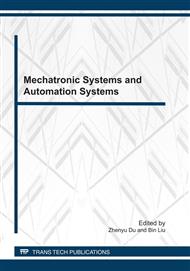p.551
p.557
p.562
p.568
p.574
p.579
p.585
p.590
p.595
Hybrid Flowshop Scheduling with Finite Transportation Capacity
Abstract:
This paper studies a class of hybrid flowshop scheduling problem characterized by release time, transportation time and transportation capacity of one unit for each transporter. This problem is formulated as an integer programming model and a Lagrangian relaxation algorithm is designed to solve it. Testing results on problems of small to medium sizes show that the Lagrangian relaxation algorithm can obtain an acceptable near optimal schedule within a shorter CPU time.
Info:
Periodical:
Pages:
574-578
DOI:
Citation:
Online since:
June 2011
Authors:
Price:
Сopyright:
© 2011 Trans Tech Publications Ltd. All Rights Reserved
Share:
Citation:


